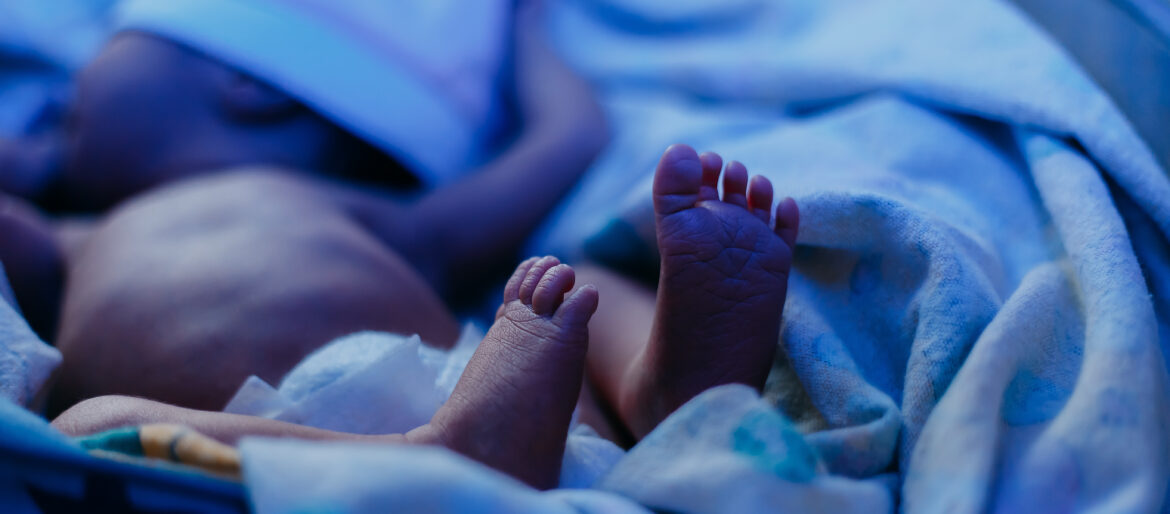When a child is born too early or with an important pathology, many professionals gather around him and his family, called to try to stretch that light thread of life well and protect it, so that it does not break too soon.
The task of these people, who have chosen to work as health workers at the service of the very young, is a borderline task: to help those small lives blossom, to help those families to resist anguish and the unknown. Last but not least, to help themselves and all the staff to weave webs of possibility, hope and wisdom, even when the threads are very fragile and the lives too small.
For this task, which is rooted in our imaginary close to myth because it touches life and death in their complexity, no one prepares us during the degree course, or in the specializations: because the preparation to keep the strings as much as possible, but also to know how to let them go with tenderness, when it is not possible to do otherwise, one learns throughout a lifetime. Sometimes, the whole professional life is not enough.
Thousands of children are born frail every year; a non-negligible percentage of these children do not survive.
In neonatal intensive care and neonatal pathologies every day the operators face these fragile lives with their technical tools and their humanity and meet the eyes of mothers and fathers who call their children to life as they can; mothers and fathers who weave threads of words, thoughts, lullabies, readings, skin, milk.
They give it their all.
You give it your all.
Operators, families, frail infants, stretch the thread day after day.
They do this by often feeling very lonely , very tense , very scared and unsure of what will happen and very attached to each other. It is impossible to live the experience of stretching the thread of life without feeling connected, without creating bonds, without carrying a piece of each of those children and those stories in the heart.
Unfortunately, many of these stories, outside the ward, are unspeakable. They find no space. Not all stories have a place in our society. Stories that “turn out badly” are not worthy.
Not even if there is so much love inside that it would be enough to live a hundred years.
The work on the border, that which takes place around fragility, limits, risk, is difficult to tell because it is difficult, distressing and painful. to listen to for those who have not lived the experience and think they can save themselves from the anguish of death by turning their faces away; the death of the newborn and the accompaniment to the end of life are events that our society does not want to contemplate.
This indifference has many repercussions both on the practical level (processing of mourning and trauma, improvement of services for families and operators) and on the theoretical level (promoting research and studying phenomena); perinatal mourning, expropriated of a space for narration and research, remains a taboo. And whoever confronts us, for work or biography, does what he can whenever he can, what he has learned to do or what he thinks is most useful “in cases like these”.
After having explored the impact of stillbirth assistance on operators with the Blossom study , which will be published in a few days in an open access obstetrics journal, we now wish to tackle perinatal death with a similar methodology with the STRONG study.
Promoted by the Joint Perinatal Research Laboratory (PeaRL) of the University of Florence (supervised by Prof A. Vannacci ), consisting of the Department of Neuroscience, Psychology, Pharmaceutical and Child Health Area and the CiaoLapo ETS Foundation , ( Dr. Claudia Ravaldi ), STRONG is a research on the well-being of perinatal operators. In particular, we are studying the impact of bad news on the well-being of doctors, nurses and all health care workers, trainees and volunteers employed daily in the care of the hospitalized infant and in the relationship with its parents .
The study received the approval of the University Research Ethics Commission
of the University of Florence, n. 127 of 18 NOVEMBER 2020 (Prot 0233044 of 21/12/20).
To participate in the study, access this link .


